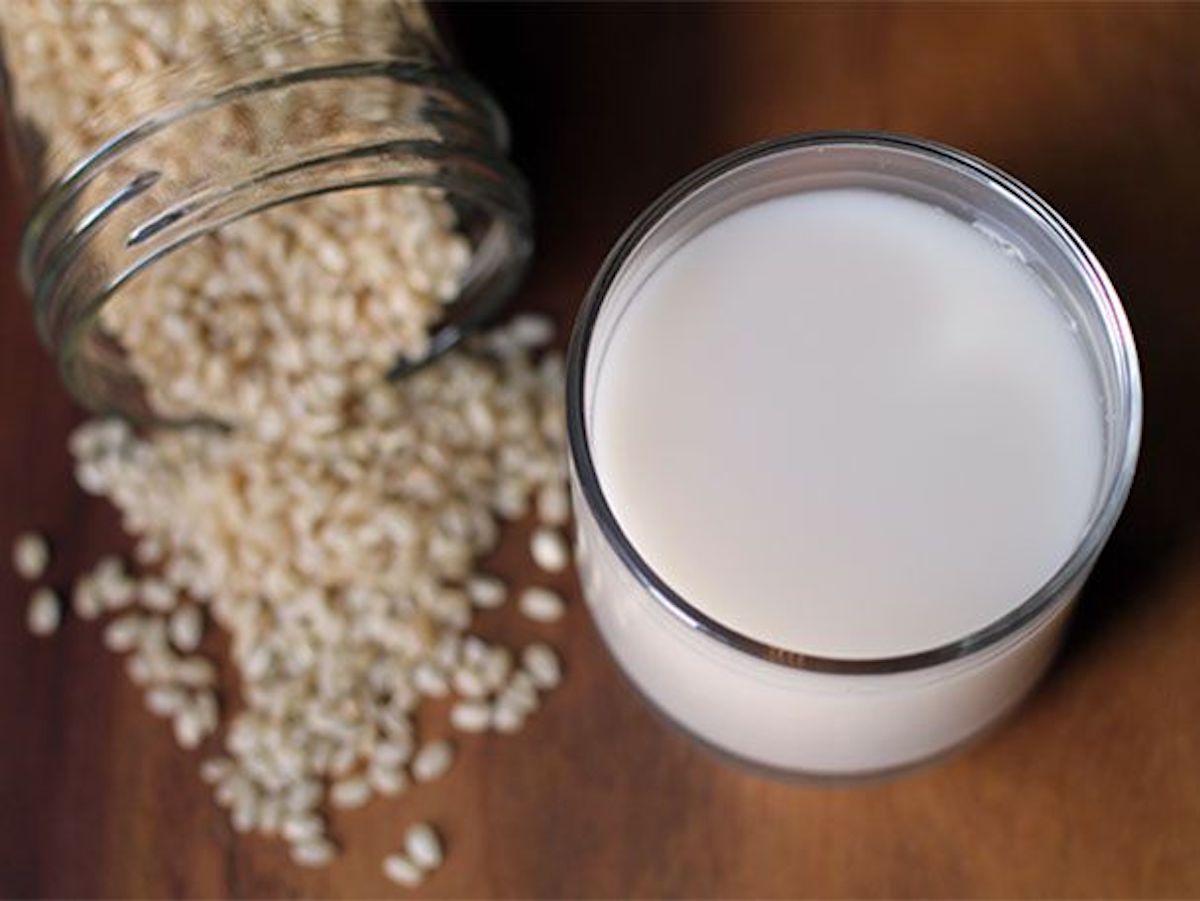#31 Rice Milk
Rice milk has gained popularity as a non-dairy alternative to cow’s milk, catering to individuals with lactose intolerance, dairy allergies, or those following a plant-based diet. Made by blending rice with water, rice milk offers a smooth and mildly sweet taste that appeals to many. While it provides a substitute for those seeking an alternative to traditional dairy milk, it’s important to consider its nutritional composition and potential considerations.

One aspect to be mindful of is the lower protein content of rice milk compared to cow’s milk and some other milk alternatives. Protein is a vital macronutrient responsible for various functions in the body, such as tissue repair, muscle growth, and immune function. While rice milk can still contribute some protein to the diet, it generally contains less protein compared to cow’s milk, soy milk, or pea milk. If rice milk is a primary source of protein in one’s diet, it may be necessary to ensure adequate protein intake from other sources such as legumes, tofu, nuts, or other plant-based protein options. Incorporating a variety of protein-rich foods into the diet is essential to meet daily protein needs.
Additionally, rice milk naturally contains higher carbohydrate levels due to its rice starch content. Carbohydrates are a primary source of energy for the body. However, individuals who are managing their carbohydrate intake, such as those with diabetes or those aiming to control their blood sugar levels, should be mindful of the carbohydrate content in rice milk. Opting for unsweetened varieties of rice milk can help reduce added sugars and minimize the impact on blood sugar levels. Portion control is also important to manage carbohydrate intake effectively.

